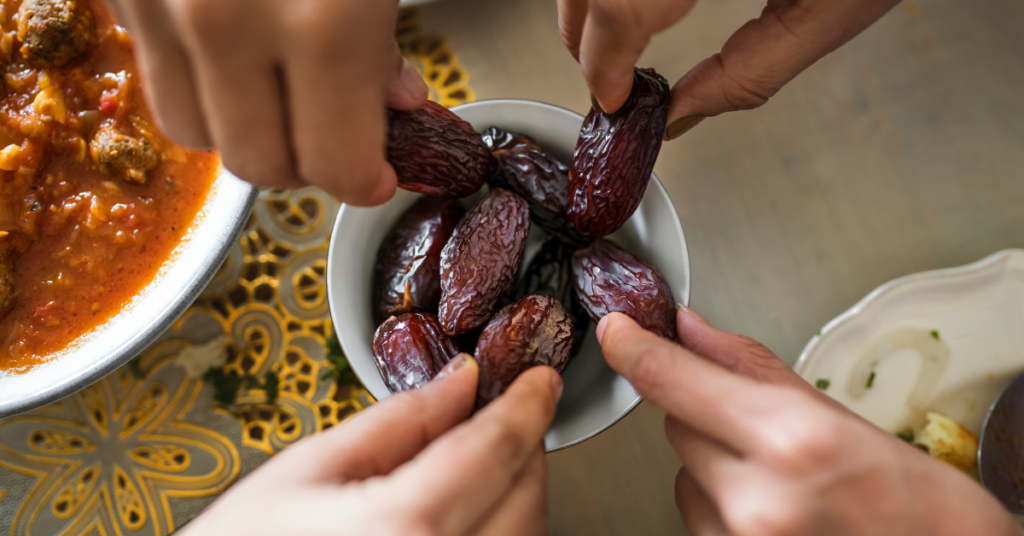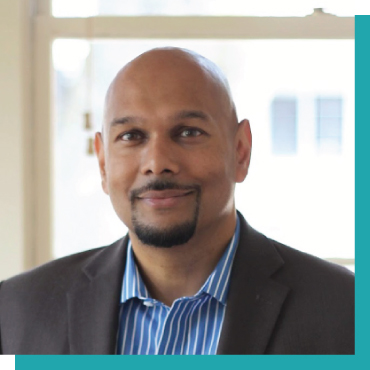Eight Points of Intercultural Fluency Around Ramadan

Ramadan Mubarak!
This translates as “Have a blessed Ramadan,” and in the vernacular it can be taken as “Happy Ramadan.” Take from this greeting the following three truths:
- Ramadan is a happy occasion.
- You do not have to be Muslim to say or receive this greeting.
- We Muslims generally view it as a time of great blessings; the traditional response to Ramadan Mubarak is “Ramadan Kareem” or “Have a generous Ramadan.” The generosity of this month in both a physical and metaphysical sense is definitely part of the experience.
Ramadan is a holy month in the Islamic Calendar. Muslims who are able to do so fast during this month from pre-dawn to sunset. Ramadan is on the lunar calendar and lasts for 30 days and shifts in relation to the Gregorian (solar) calendar by about 11 days a year. For example, when I was 18 years old and became a Muslim, it was in December (the fasting days in the Northern Hemisphere were shorter then), and this year it begins in March.
We fast from food and water and in/for the professional spaces we are a part of this cultural shift can create awkwardness, so to help professional communities navigate this month here are eight points of intercultural fluency around Ramadan to help create connection in this Holy Month.
- Yes, you can acknowledge the Ramadan in the room. Ramadan Mubarak is the way to welcome it with your colleagues.
- There is no need for shock and awe when you find out about the fast and how long it is. We are well aware of it, and if we choose to fast, we do so mindfully and have taken on the preparation to do so.
- Ramadan is not a diet. I have heard the variation of “I can stand to lose a few lbs.,” over the years from well-meaning colleagues in response to the discovery that I fast during Ramadan and the reason this is an awkward comment is because it assumes that we fast for weight loss, and the reasoning for our fasting is much deeper and more spiritual; comments like this diminish our religious self-worth within our professional community.
- Ramadan is not a game; there is no need for you to hide your food. Your fasting Muslim colleagues may still sit with you while you eat and participate in conversations. On the flip side, don’t insist that we have a drink or eat some food.
- Muslims are not a monolith. We are varied by our cultures and religious interpretations, and there are nuances to how we may fast, when we start our fast, and when we end it. If you have a strong relationship of dialogue with your Muslim colleague, feel free to ask them how they participate in Ramadan—so you can understand. If they have not opened up to you about their faith or identity in this way, refrain from imposing Ramadan on them.
- Muslims may not fast this month for a variety of reasons, all of which are personal. Many of the reasons can be medical and interrogating a colleague as to why can be violative of their privacy.
- There is absolutely no need to feel sorry for us—and at the same time if possible, flexibility in the work schedule, with some deadlines, and the opportunities for breaks are welcome accommodations. If you are a supervisor, don’t assume we don’t want accommodations; have a conversation about what those might be with us, if at all.
- A solidarity fast is something that is fine, if invited—the idea that a colleague can participate for a day or more can build community in the proper context but can also create disconnect if it’s approached as a tourist experience in someone else’s faith.
For me Ramadan is not only physically challenging, but also metaphysically. I enjoy the fast and love the perspective I gain when I refrain from food and water throughout the day. I love the mindful control I develop over my body and the growth in my spirit in charity to end global thirst and hunger through the organizations I belong to. I also love the family time, and the multi-ethnic iftars we have—and even through the pandemic, I can appreciate how we still built community spirit over Zooms and socially distant potluck events. This is a month of warmth and gratitude where empathy and love reign supreme. Whether at home or at work, it is a month where generosity abounds, so I sign off with: Ramadan Kareem.
The original version of this article appeared on the Inclusion Factor website.

Kalyan “Kal” Balaven is the Head of School at Dunn School in Los Olivos, California. Kal has spent 20+ years in education and as an administrator in both public charter schools and independent schools. He is the host of the Whole Student Podcast, a show that asks notable people about the impactful teachers in their lives. He founded the Inclusion Lab (a DEI partnership of public and private schools in Santa Barbara County). Kal also created the Inclusion Dashboard Consortium and Inclusion Factor, both of which remain key think tanks for schools centered around inclusion. He serves on the the Boards of CAIS and Northern Light School in Oakland. He loves writing, poetry, and spoken word and has been known to “spit a few bars” from time to time. Kal loves comics and graphic novels, long slow runs, and is a diehard 49er fan.
